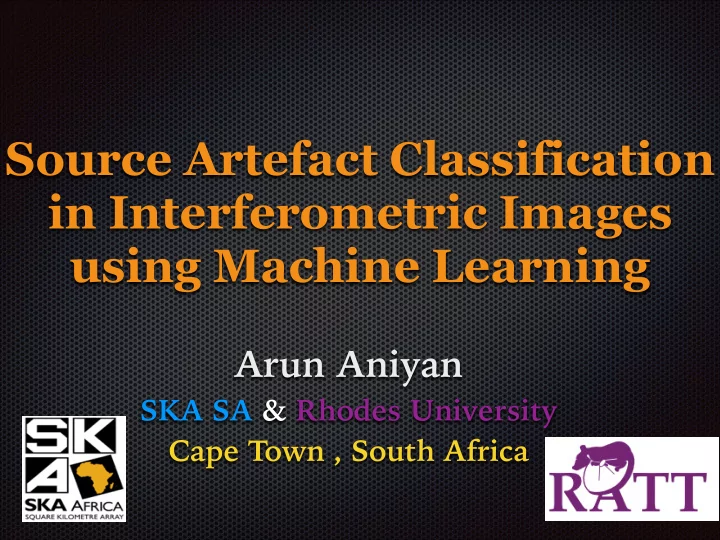

Source Artefact Classification in Interferometric Images using Machine Learning Arun Aniyan SKA SA & Rhodes University Cape Town , South Africa
Motivation The field around 3C147, at 5 million dynamic range using 21cm JVLA data. Smirnov et. al 2015
Motivation 1. Improving reliability of source finders and thus creating better source catalogues. 2. Reducing the steps in the reduction
Objective Distinguishing real sources from artefacts in radio interferometric images in order to make reliable sources catalogs
Dataset Generation Simulation pipeline with Meqtrees Noordam & Smirnov , 2010 http://meqtrees.net/
Dataset Generation Generate sources in Extract sources with random positions PyBDSM Cross match with known Induce DDE + pointing sky model & PyBDSM errors model Extract PyBDSM + Generate Images for “n” hours of observations generated features
Dataset Generation Generated simulated skies for the JVLA in C-configuration using L-band Generated Images for observational periods from 1 hr to 25 hrs Ran PyBDSM to get catalogues of sources and artefacts with their features.
Feature Extraction 1. Flux features Total flux, Peak flux 2. Axis-Angle features FWHM of deconvolved major axis etc 3. Nearest bright source features Distance to nearest bright source Total 28 features
Results Classifier Accuracy Recall Decision Tree 88.67 92.05 KNN 95.92 99.94 Random 95.22 99.18 Forest Naive Bayes 82.04 84.75
Feature Analysis
Feature Analysis Features rich in discriminatory power 1. Nearest bright source features 2 . Flux features
Conclusion and Future Direction High accuracy Classification of Sources and Artefacts Identification of useful features for classification Development of Convolution Neural Network
Thank You ! arun@ska.ac.za
Recommend
More recommend